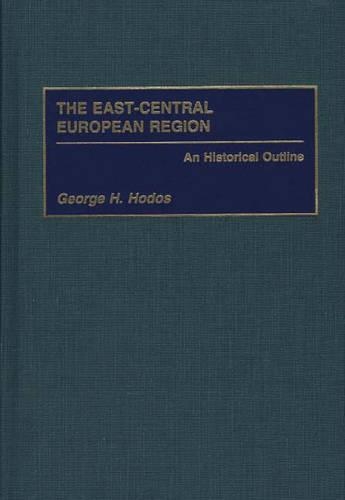
East Central Europe after the Warsaw Pact: Security Dilemmas in the 1990s
(Hardback)
Publishing Details
East Central Europe after the Warsaw Pact: Security Dilemmas in the 1990s
By (Author) Andrew Michta
Bloomsbury Publishing PLC
Praeger Publishers Inc
17th March 1992
United States
Classifications
Tertiary Education
Non Fiction
International relations
327.10947
Physical Properties
Hardback
216
Description
Andrew A. Michta examines the security of Poland, Czechoslovakia, and Hungary in the aftermath of th 1989 collapse of Communism and the Soviet empire in Eastern Europe. He reviews the old geopolitical dilemmas in the region as well as the new conditions in Europe as it approaches the remainder of the decade, and offers a country-by-country discussion of security policies and military reforms underway in the region. The analysis is set against a background discussion of the region's history as well as a review of the key events leading to the disintegration of the Warsaw Treaty Organization, including the reformulation of Soviet security policy in the late 1980s. Michta concludes with an assessment of security challenges facing "the triangle" states of Poland, Czechoslovakia, and Hungary as they work to join Western Europe by the end of the decade. He argues that the Triangle will remain in a "grey security zone" in Europe for the foreseeable future, with an implicit security commitment from NATO, but without explicit formal security guarantees.
Reviews
Michta offers a lucid summary and analysis of the current security dilemmas of a cluster of key East Central European nations which the author labels the "triangle": Poland, Czechoslovakia, and Hungary. The contribution is valuable in that it frames the current security situation of the "triangle" against the backdrop of broad 20th-century historical patterns. A central question is the issue of whether this "triangle" will serve in the future as the eastern frontier of Europe against a hostile Russia or as a bridge between Europe and Russia. A corollary theme is whether future patterns in the East will include a resurgent, aggressive Russia or chaos that accompanies the emergence of successor states to the old Soviet Union. With respect to the individual countries of the "triangle," the author depicts Poland as switching from the offensive orientation of the Warsaw Pact to defensive concern about numerous potential trouble spots on its eastern border. Czechoslovakia is unique in its trust in the CSCE (Conference on Security and Cooperation in Europe) process as well as in its preoccupation with the question of Slovak autonomy. Hungary has been the most vigorous in rejecting Soviet leadership as well as in sifting through a number of possible Western institutional arrangements.-Choice
"Michta offers a lucid summary and analysis of the current security dilemmas of a cluster of key East Central European nations which the author labels the "triangle": Poland, Czechoslovakia, and Hungary. The contribution is valuable in that it frames the current security situation of the "triangle" against the backdrop of broad 20th-century historical patterns. A central question is the issue of whether this "triangle" will serve in the future as the eastern frontier of Europe against a hostile Russia or as a bridge between Europe and Russia. A corollary theme is whether future patterns in the East will include a resurgent, aggressive Russia or chaos that accompanies the emergence of successor states to the old Soviet Union. With respect to the individual countries of the "triangle," the author depicts Poland as switching from the offensive orientation of the Warsaw Pact to defensive concern about numerous potential trouble spots on its eastern border. Czechoslovakia is unique in its trust in the CSCE (Conference on Security and Cooperation in Europe) process as well as in its preoccupation with the question of Slovak autonomy. Hungary has been the most vigorous in rejecting Soviet leadership as well as in sifting through a number of possible Western institutional arrangements."-Choice
Author Bio
ANDREW A. MICHTA is Assistant Professor of International Studies at Rhodes College in Memphis, Tennessee, where he holds the Metrie Willigar Buckman Chair of International Studies. Dr. Michta is the author of Red Eagle: The Army in Polish Politics, 1944-1988, and a number of articles on Soviet and East European politics.
